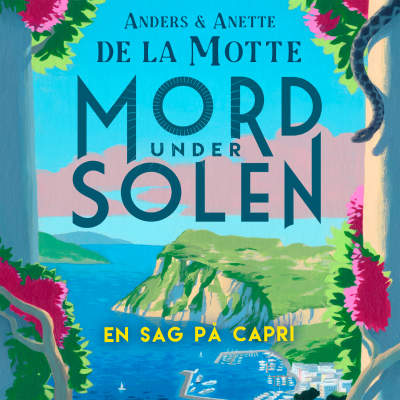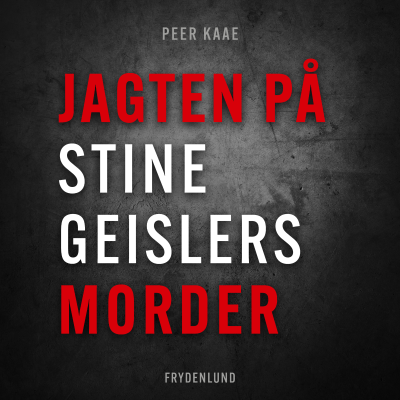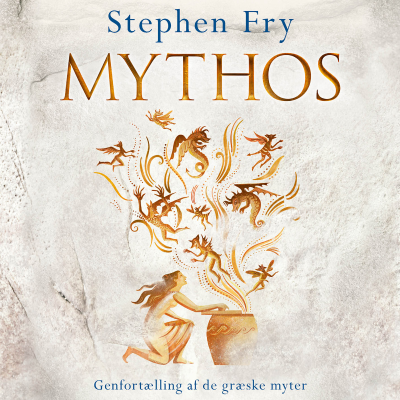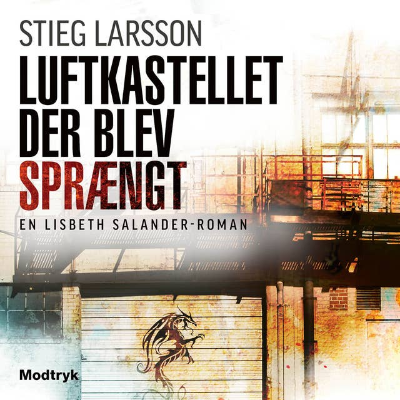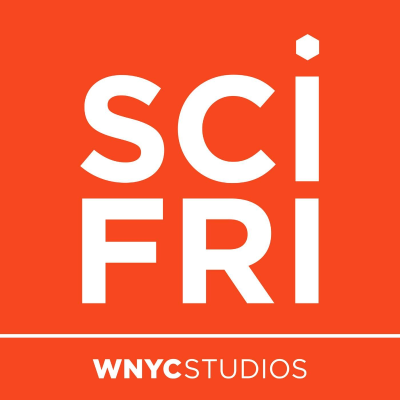
Science Friday
Podcast af Science Friday and WNYC Studios
Prøv gratis i 7 dage
99 kr. / måned efter prøveperioden.Ingen binding.

Mere end 1 million lyttere
Du vil elske Podimo, og du er ikke alene
Rated 4.7 in the App Store
Læs mere Science Friday
Covering the outer reaches of space to the tiniest microbes in our bodies, Science Friday is the source for entertaining and educational stories about science, technology, and other cool stuff.
Alle episoder
993 episoderThis month, the Department of Health and Human Services terminated almost $500 million in mRNA vaccine development grants and contracts. While HHS has said that these cuts won't affect mRNA cancer research [https://www.sciencefriday.com/segments/pancreatic-cancer-mrna-vaccine-aug-2025/?utm_source=wnyc&utm_medium=podcast&utm_campaign=scifri], some researchers have expressed concern about the impact on their ongoing work. In light of these developments, we’re revisiting a conversation from February. A team at Memorial Sloan Kettering is developing an mRNA vaccine for pancreatic cancer [https://www.sciencefriday.com/segments/pancreatic-cancer-mrna-vaccine-aug-2025/?utm_source=wnyc&utm_medium=podcast&utm_campaign=scifri], which is notoriously difficult to treat. A few years ago, the team embarked on a small trial to test the vaccine’s safety. Sixteen patients with pancreatic cancer received it, and half of them had a strong immune response. A follow-up study found that in six of those patients, the cancer hadn’t relapsed after three years. Host Flora Lichtman spoke to study author Vinod Balachandran about the work, which has not yet been affected by the cuts, according to Memorial Sloan Kettering. Guest: Dr. Vinod Balachandran is an associate attending surgeon and Director of The Olayan Center for Cancer Vaccines at Memorial Sloan Kettering in New York, New York. Transcripts for each segment will be available after the show airs on sciencefriday.com. [https://www.sciencefriday.com/segments/pancreatic-cancer-mrna-vaccine-aug-2025/?utm_source=wnyc&utm_medium=podcast&utm_campaign=scifri] Subscribe to this podcast. [https://pod.link/73329284] Plus, to stay updated on all things science, sign up for Science Friday's newsletters [https://www.sciencefriday.com/newsletters/?utm_source=wnyc&utm_medium=podcast&utm_campaign=scifri].
Since President Trump returned to office, his administration has been aggressive in rolling back clean energy initiatives. But that isn’t the whole story. Texas, California, and other states are bringing so much solar and battery power online [https://www.sciencefriday.com/segments/solar-power-rise-clean-energy/?utm_source=wnyc&utm_medium=podcast&utm_campaign=scifri] that in March, fossil fuels generated less than half the electricity in the US for the first time ever. And internationally, solar has gotten so cheap [https://www.sciencefriday.com/segments/solar-power-rise-clean-energy/?utm_source=wnyc&utm_medium=podcast&utm_campaign=scifri] to build and install that it’s fundamentally transforming many countries’ power grids. So where exactly does solar adoption stand in the US and across the world right now? Climate activist Bill McKibben joins Host Ira Flatow to talk about the recent wins and future challenges that sun-powered energy faces, which he writes about in his new book Here Comes The Sun: A Last Chance for the Climate and a Fresh Chance for Civilization. [https://www.sciencefriday.com/articles/solar-power-book-excerpt/?utm_source=wnyc&utm_medium=podcast&utm_campaign=scifri] Guest: Bill McKibben is a climate activist and founder of Third Act. He’s based in Middlebury, Vermont. Transcripts for each episode are available within 1-3 days at sciencefriday.com. [https://www.sciencefriday.com/segments/solar-power-rise-clean-energy/?utm_source=wnyc&utm_medium=podcast&utm_campaign=scifri] Subscribe to this podcast. [https://pod.link/73329284] Plus, to stay updated on all things science, sign up for Science Friday's newsletters [https://www.sciencefriday.com/newsletters/?utm_source=wnyc&utm_medium=podcast&utm_campaign=scifri].
Fireflies’ magical blinking lights are tiny beacons in the warm dark night. Who can resist catching one? Not scientists. Because their light comes from bodily chemicals, fireflies’ power of illumination has long been used as a tool in medical research [https://www.sciencefriday.com/segments/firefly-bioluminescence-scent-communication/?utm_source=wnyc&utm_medium=podcast&utm_campaign=scifri]. And that has driven scientists to investigate the inner workings of the blinking beetle itself. Researchers have recently discovered that fireflies’ glowing lanterns are only one of the ways they communicate. Host Ira Flatow talks with entomologist Sarah Lower and biochemist Stephen Miller about the latest advances in firefly science. [https://www.sciencefriday.com/segments/firefly-bioluminescence-scent-communication/?utm_source=wnyc&utm_medium=podcast&utm_campaign=scifri] Guests: Dr. Sarah Lower is an associate professor of biology at Bucknell University where she studies fireflies. Dr. Stephen Miller is a professor of biochemistry and molecular biotechnology at the UMass Chan Medical School. Transcripts for each episode are available within 1-3 days at sciencefriday.com. [https://www.sciencefriday.com/segments/firefly-bioluminescence-scent-communication/?utm_source=wnyc&utm_medium=podcast&utm_campaign=scifri] Subscribe to this podcast. [https://pod.link/73329284] Plus, to stay updated on all things science, sign up for Science Friday's newsletters [https://www.sciencefriday.com/newsletters/?utm_source=wnyc&utm_medium=podcast&utm_campaign=scifri].
Throughout history, humans have been on a search for truth. From the ancient Greeks and their belief in a universal truth, to our Founding Fathers writing, “We hold these truths to be self-evident, that all men are created equal.” In a world of disinformation, conspiracy theories, and the rising influence of artificial intelligence, where does truth fit in? [https://www.sciencefriday.com/segments/proof-the-art-and-science-of-certainty-truth/?utm_source=wnyc&utm_medium=podcast&utm_campaign=scifri?] Mathematician Adam Kucharski, author of Proof: The Art and Science of Certainty, joins Host Ira Flatow to discuss the complicated truth. Read an excerpt of Proof: The Art and Science of Certainty. [https://www.sciencefriday.com/articles/proof-book-monty-hall-problem/?utm_source=wnyc&utm_medium=podcast&utm_campaign=scifri] Guest: Dr. Adam Kucharski is a mathematician and author of Proof: The Art and Science of Certainty. He is based in London. Transcripts for each episode are available within 1-3 days at sciencefriday.com. [https://www.sciencefriday.com/segments/proof-the-art-and-science-of-certainty-truth/?utm_source=wnyc&utm_medium=podcast&utm_campaign=scifri?] Subscribe to this podcast. [https://pod.link/73329284] Plus, to stay updated on all things science, sign up for Science Friday's newsletters [https://www.sciencefriday.com/newsletters/?utm_source=wnyc&utm_medium=podcast&utm_campaign=scifri].
Did you know that murder mystery writer Agatha Christie had a background in chemistry? In about half of her stories, the murder is committed using poison—something she was very, very familiar with. She had even trained in apothecaries to mix prescriptions by hand before she became a novelist. Chemist-turned-author Kathryn Harkup wrote about them in her new book [https://www.sciencefriday.com/segments/agatha-christie-poisons-book/?utm_source=wnyc&utm_medium=podcast&utm_campaign=scifri], V is for Venom: Agatha Christie’s Chemicals of Death. Harkup talks with Host Flora Lichtman about the science of poisons, why they’re so popular in whodunnits, and how to get away with murder (in fiction writing, of course). Guest: Kathryn Harkup is a former chemist and author of V is for Venom: Agatha Christie’s Chemicals of Death. Transcripts for each episode are available within 1-3 days at sciencefriday.com. [https://www.sciencefriday.com/segments/agatha-christie-poisons-book/?utm_source=wnyc&utm_medium=podcast&utm_campaign=scifri] Subscribe to this podcast. [https://pod.link/73329284] Plus, to stay updated on all things science, sign up for Science Friday's newsletters [https://www.sciencefriday.com/newsletters/?utm_source=wnyc&utm_medium=podcast&utm_campaign=scifri].

Rated 4.7 in the App Store
Prøv gratis i 7 dage
99 kr. / måned efter prøveperioden.Ingen binding.
Eksklusive podcasts
Uden reklamer
Gratis podcasts
Lydbøger
20 timer / måned





















